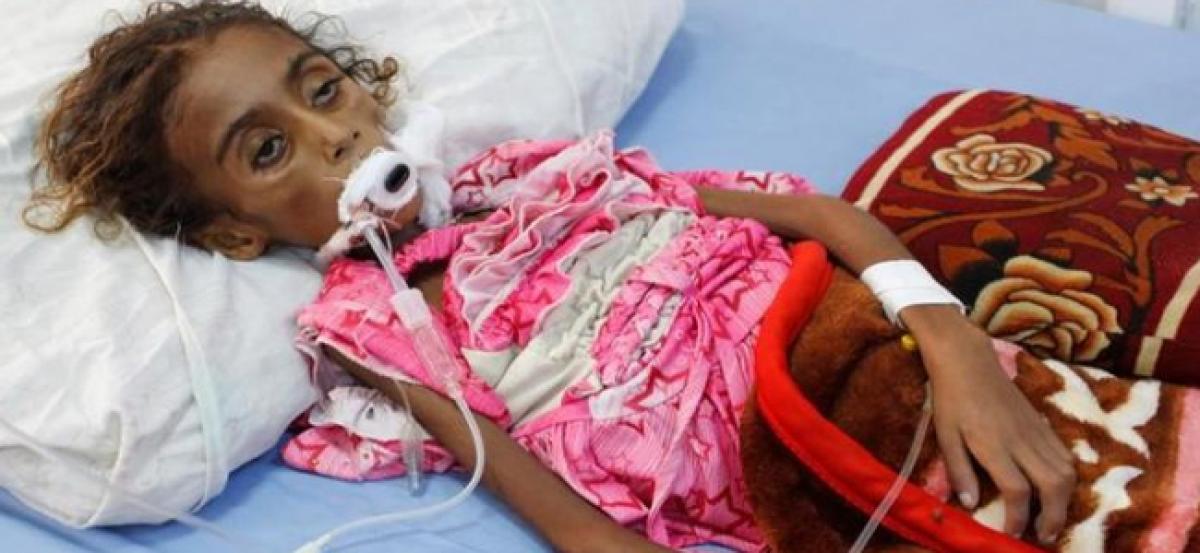Live
- Modi will amend Waqf Act despite opposition: Shah
- Caste census empowers marginalised: Rahul
- Civic chief inspects Smart City project works
- PDSU flays govt apathy in solving students’ problems
- Contribution of tribals to freedom struggle ignored
- Modi dividing society: Pawar
- Downing Street says sorry for wine, non-veg food in Diwali menu
- Lokesh hailed for withdrawing cases against employees
- India’s economy in sweet spot with strong growth: Moody’s
- YSRCP govt failed to release sufficient funds for medical colleges, flays Minister
Just In

Eyes half open and sunken deep into their sockets, little Jamila Ali Abdu already looked half dead for most of her 12-day stay at the malnutrition ward of Yemen\'s Hodeidah hospital.
HODEIDAH, YEMEN: Eyes half open and sunken deep into their sockets, little Jamila Ali Abdu already looked half dead for most of her 12-day stay at the malnutrition ward of Yemen's Hodeidah hospital.
Too weak to resist the march of disease and hunger in her war-battered country, the seven-year-old's tiny frame was swathed in a childishly bright green shroud and lowered by sobbing relatives into a dusty grave on Tuesday.
Two years of war between a Saudi-led military coalition and Yemen's armed Houthi movement, allied to Iran, have plunged what was already the Arab world's poorest country into a deep humanitarian crisis.
Public finances for healthcare are in disarray, while roads and bridges for transporting basic goods are bombed-out ruins.
Jamila suffered from worms which doctors in her remote village home were unable to treat, and her family could not afford to transfer her for specialist care in the capital Sanaa.
"Her condition has been deteriorating for the past two years ... Every time we went to a hospital they told us she has worms and bacteria. We couldn't get anywhere and we are poor people and can't go to Sanaa or anywhere else," lamented her father Ali just before her death.
Even before the war, villagers on the baking plains, clumped with gnarly palms, on Yemen's Red Sea coast were already struggling to get clean water, feed themselves and obtain medicine.
Now thousands of Saudi-led air strikes and nationwide battles have demolished Yemen's fragile economy and squeezed food supplies.
The United Nations warns that a child under five in Yemen dies around every 10 minutes from preventable causes such as starvation, disease, poor sanitation or lack of medical care.
U.N. chief Antonio Guterres warned last week of "the starving and the crippling of an entire generation."
Nearly 17 million of Yemen's 28 million people are deemed "food insecure" by aid groups, and around 7 million do not know where they will get their next meal.
After a visit to Yemen, head of the Norwegian Refugee Council Jan Egeland condemned the warring parties and foreign powers for failing to end what he called a "preventable catastrophe (that) is man-made from A to Z."
"This is a gigantic failure of international diplomacy. Men with guns and power inside Yemen as well as in regional and international capitals are undermining every effort to avert an entirely preventable famine, as well as the collapse of health and education services for millions of children," he said.

© 2024 Hyderabad Media House Limited/The Hans India. All rights reserved. Powered by hocalwire.com







